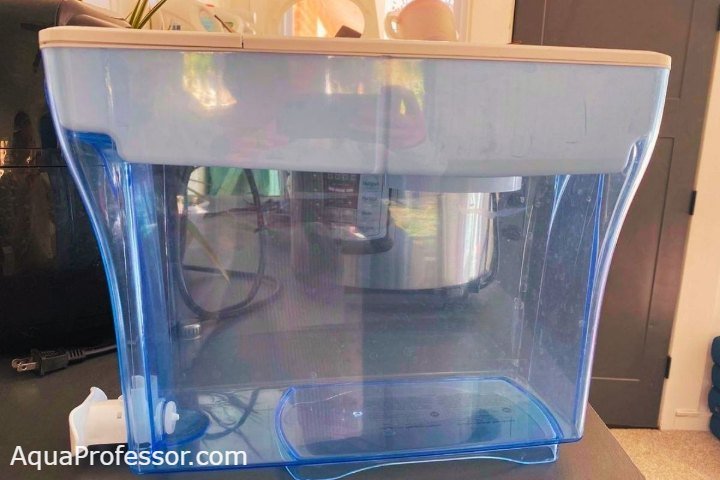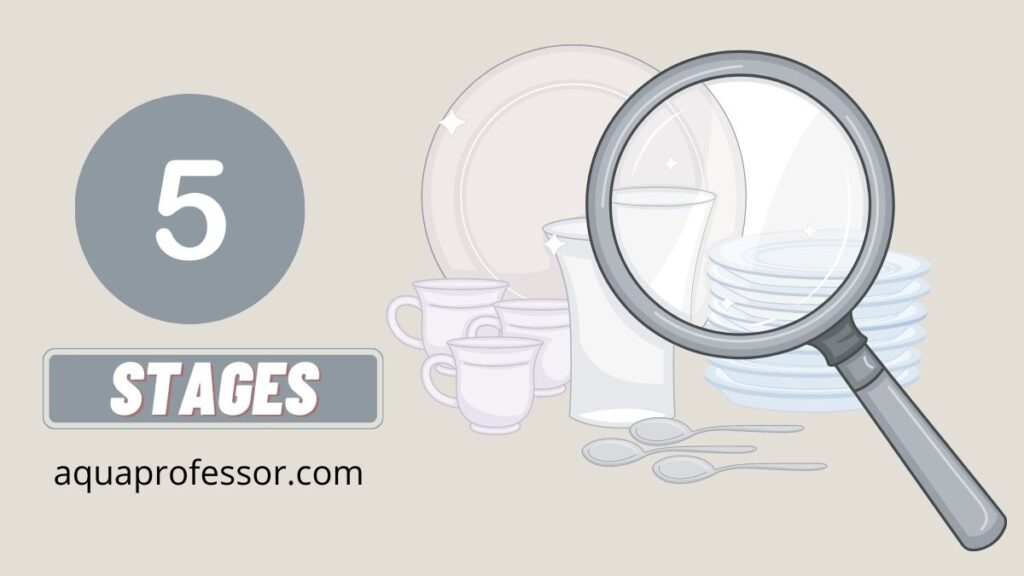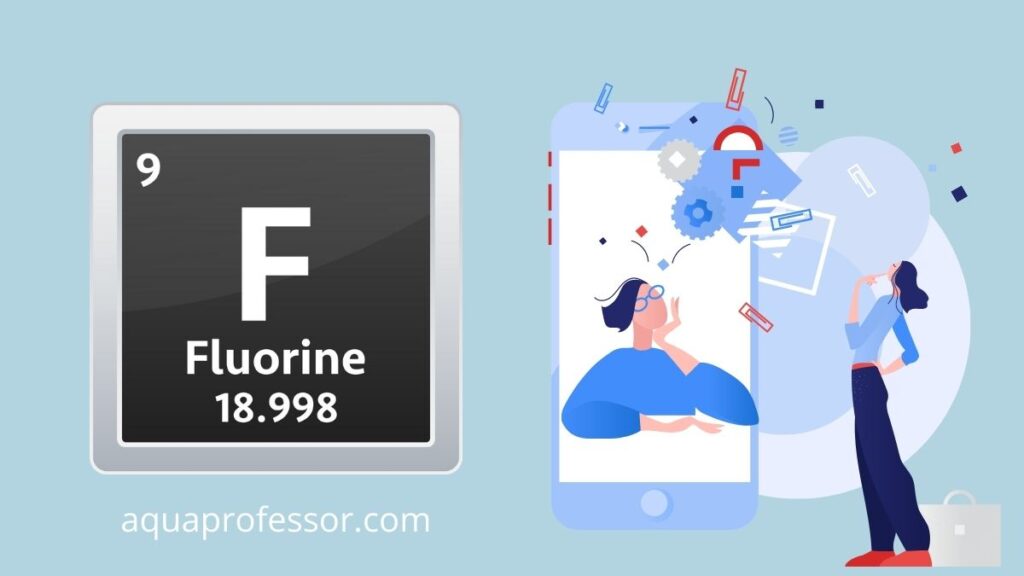Anything in excess is harmful, and it’s especially true for fluoride, that’s not natural. The fluoride in water, a neurotoxin, can prove dangerous for people if present in excessive volumes, as it can cause bone problems and tooth discoloration.
So the question for today is, does Zerowater filter remove fluoride from tap water or not. We will conduct a rigorous test to find the truth behind the company’s claims.
Here we go!
- ❓ Does ZeroWater Filter Remove Fluoride: Test Results Using A Fluoride Meter
- ❓ How Does ZeroWater Filter Remove Fluoride So Impressively From Tap Water?
- ❓ What Other Kinds Of Impurities Does A ZeroWater Filter Remove Besides Fluoride?
- ❓ ZeroWater Filter Troubleshooting And Frequently Asked Questions
- ❓ Final Thoughts…
? Does ZeroWater Filter Remove Fluoride: Test Results Using A Fluoride Meter
Since you know now that fluoride can harm your health, you would certainly want it removed from tap water or drinking water.
ZeroWater claims to remove most of this fluoride from the water through its pitchers and filters.
But we can’t go on their words blindly, can we?
So I conducted a test using a fluoride meter to check if these filters do what the manufacturers claim they do.
First, I checked the fluoride level of the normal tap water of my house before filtering it in the ZeroWater filter. Then I checked for the same after the filtration process of the ZeroWater filter.
While the fluoride levels in tap water vary from region to region, it usually remains from 0.6 ppm to 0.10 ppm. When I checked the fluoride level of my house’s tap water, it came out to be 0.6 ppm.
After that, I poured some water into the ZeroWater filter and put some filtered water into a glass. Now when I used the fluoride meter to check the fluoride level, it came out to be 0 ppm.
Yes, this means that there was almost no fluoride in the filtered water!
This test instantly answered my question, and I am pretty amazed by the performance of this filter in terms of removing fluoride from tap water.
My Verdict
The best part is that the ZeroWater filter made a remarkable difference by reducing 0.6 ppm of fluoride from water. That’s a lot.
I expected the fluoride level after the filtration to be around 0.2 or 0.1 ppm. So I can see that ZeroWater keeps its word of removing over 99% of fluoride from tap water.
Also Read: 11 Easy Steps To Clean RO Filter In Record-Time [Updated]
? How Does ZeroWater Filter Remove Fluoride So Impressively From Tap Water?

The results of my fluoride removal test on Zerowater filters are excellent. But let us dive deeper into the process used for filtration by these flyers and pitchers to remove fluoride from water.
And yes, it is not any magic. Like most filters, ZeroWater also uses an ion exchange process to remove the inorganic chemicals dissolved in water, leaving only pure water behind.
Also Read: Why Brita Filter Is Slow
ZeroWater uses a five-stage advanced filtration technology to remove all inorganic chemicals, including fluoride, from the water. I have explained these five stages in detail below.

⭐ Five-stage Advanced Filtration Technology ⭐
-
STAGE 1
Once you pour water into the filter, stage 1 of this advanced filtration system begins. It includes the removal of bigger particles like dirt and other microorganisms from the water with the help of the coarse filter screen. -
STAGE 2
Now comes the elimination of any all-out dissolved particles left behind in the water. In this step, the froth distributor assists by making small openings in the foam. With these openings in foam, the water goes in and gets easily filtered by the froth distributor. -
STAGE 3
This is where the advanced feature comes in. ZeroWater filters and pitchers use carbon filtration technology that thoroughly removes all kinds of dirt from the water. This stage involves passing the water through multiple layers of activated carbon and oxidation to reduce alloys.
The activated carbon filters prevent the bacteria from breeding by making the water sterile. It reduces natural chemicals and mixtures like chlorine, pesticides, chloramines, mercury, and herbicides. -
STAGE 4
This is the stage where fluoride is wholly taken out of the water. Here the filter uses the double ion exchange to remove radiological contaminants, metals, and non-metals and separates water atoms (H2O atoms) from the total dissolved solids during filtration. The resin acts as a medium in this double ion exchange process. -
STAGE 5
In this stage, any remaining suspended particles and solids are removed by a non-woven layer and a superfine screen. It completes the filtration process and leaves 99.6% pure water, according to the testing data provided by Water Quality Association (WQA).
This five-stage advanced filtration process has proved to be very effective and helpful in making water cleaner and purer.
The double ion exchange process and activated carbons play significant roles in eliminating all kinds of dirt, chemicals, and mixtures from the water.
Also Read: The Brita Pitcher Cleaning Guide
? What Other Kinds Of Impurities Does A ZeroWater Filter Remove Besides Fluoride?

If you have read the article this far, you must be very clear about the fluoride removal procedure and its results. It’s time to look at the other substances this filter can remove to make water almost a hundred percent pure.
The table below shows the percentage of removal of the above-listed substances based on the amount of water filtered in the ZeroWater filter:
| Substance | 75 Liters filtered | 150 Liters filtered |
| Arsenic (+3) | 98% | 85% |
| Barium | 99.9% | 99.9% |
| Chlorine | 99% | 99% |
| Copper | 99.9% | 99.9% |
| Cyanide | 99.9% | 99% |
| Iron | 99.9% | 99.9% |
| Mercury | 92% | 91% |
| Nitrate | 98% | 78% |
| Nitrite | 99% | 88% |
| Zinc | 99.9% | 99.9% |
The metals and non-metals listed above are just some of the impurities ZeroWater filters and pitchers remove from water.
Let us now check out the removal details of the metals removed by the ZeroWater filter from the water.
- Arsenic (+3): 98 percent is removed by the fourth stage of the advanced filtration process.
- Barium: 99.9 percent is removed by the third stage of the advanced filtration process.
- Copper: 99.9 percent is removed by the fifth stage of the advanced filtration process.
- Iron: 99.9 percent is removed by the fourth stage of the advanced filtration process.
- Mercury: 92 percent is removed by the third stage of the advanced filtration process.
- Zinc: 99.9 percent is removed by the third stage of the advanced filtration process.
Now I will mention some of the inorganic non-metals removed by the ZeroWater filter from the water besides fluoride.
- Chlorine: 99 percent is removed by the fifth stage of the advanced filtration process.
- Cyanide: 99.9 percent is removed by the third stage of the advanced filtration process.
- Nitrate: 98 percent is removed by the fourth stage of the advanced filtration process.
- Nitrite: 99 percent is removed by the fourth stage of the advanced filtration process.
Also Read: Does Vitaminwater have electrolytes your body needs? [Truth Is Out!]
❓ ZeroWater Filter Troubleshooting And Frequently Asked Questions
1. How do you unclog a ZeroWater filter?
Step 1: Unscrew the filter body and reattach it. It does not require any tools. It should fix clogging reasons like an airlock.
Step 2: Use a pair of tweezers to poke several gentle holes into the filter screen. Be careful not to make the holes very deep as it could hamper the entire filtration process and its effectiveness.
Step 3: Check the TDS (Total Dissolved Substances) level of unfiltered water. ZeroWater filters are supposed to make the TDS level of water zero. If the TDS concentration remains on a high level after filtering, consider replacing the filter or buying a new one.
2. Why is my ZeroWater filter slow?
· Blockage in the filter housing area
· Trapped air bubbles
· Improper installation
· Replacement needed for old filter
· Scale deposits
· Hot water damage
To fix these issues, do not use too cold or too hot water, clean your filter regularly by unscrewing and reassembling all the parts, and make sure that the installation is done correctly. Also, keep track of the age of your filter and if it needs replacement or not.
3. How long should a ZeroWater filter last?
4. Can you put a ZeroWater pitcher in the fridge?
5. Is Brita better than ZeroWater?
? Final Thoughts…
ZeroWater filters and pitchers perform as per the expectations. It gets 99.6% of contaminants eliminated from the water.
What else would you need from a water filter in terms of purity? So I think that it is worth buying!
I will be waiting for your feedback on your experience with ZeroWater filters, so do share them in the comment box below.
Adarsh is a Health & Nutrition Sciences graduate with expertise in environmental health. He is associated with ventures like Glacier Fresh Filter and Simpure Filter Systems. Through Aqua Professor, he intends to provide helpful information to every home to help them make smarter decisions.
